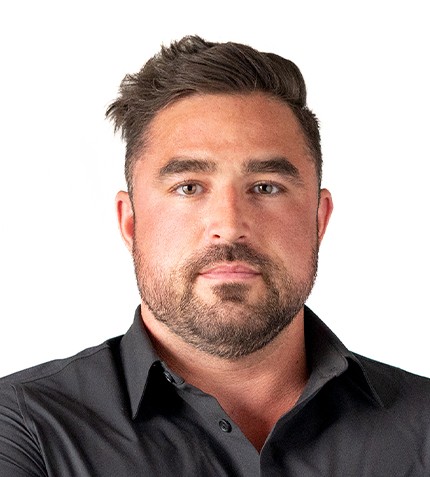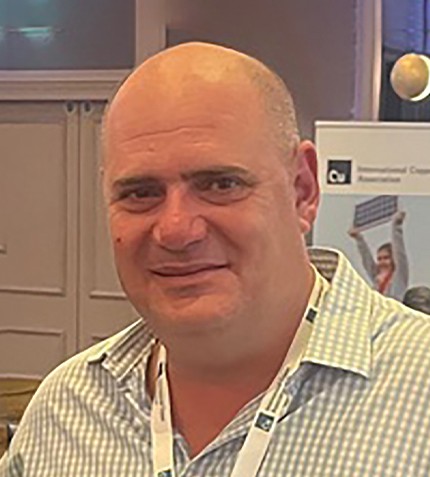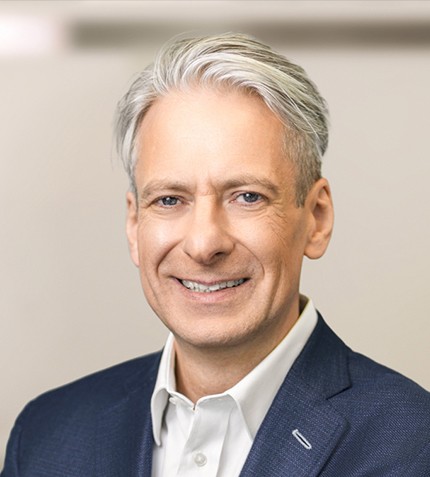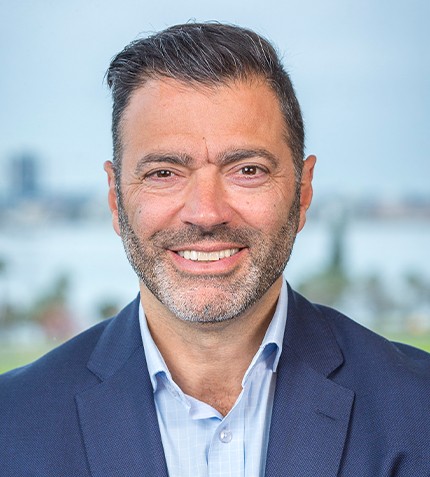
"We aim to develop an open-pit gold mine with a mine life of 20 years or more, producing over 300,000 oz/y, along with significant amounts of copper and silver."
Justin Reid
CEO AND DIRECTOR, TROILUS GOLD
What makes the Troilus Gold project special?
In late 2017, we acquired the Troilus past-producing open-pit mine, which operated from 1996 to 2010 under Inmet Mining Corporation. During its lifespan, the mine produced approximately 2 million oz Au and 70,000 t of copper. However, it ceased due to economic factors such as low gold prices and a high Canadian dollar, among others. After acquiring the project, we went public in 2018. Since then, Troilus Gold has conducted an extensive drilling program, with over 340,000 m drilled, leading to the discovery of a higher-grade zone called X22. As of September 2020, the total resource stands at 8.1 million oz equivalent, with an additional 200,000 m of drilling to be included in a mineral resource update in the second half of this year. We aim to develop an open-pit gold mine with a mine life of 20 years or more, producing over 300,000 oz/y, along with significant amounts of copper and silver. The feasibility study is currently underway, and we expect to obtain permits by the end of 2024, progressing toward mine construction.
What was the decision-making behind the recent agreement to sell claims to Sayona Mining?
As we started adding ounces to Troilus, we realized that the belt had been incorrectly explored. To address this, we decided to acquire a couple of companies, which allowed us to acquire a large land position of about 50,100 square km. Over the course of three years and with an investment of approximately C$7 million, we assessed this regional work and successfully defined a core gold corridor spanning 500 square km. Around the same time, Sayona had recently acquired other companies and needed land and air-ground to work around their deposit. Recognizing the opportunity, we struck a C$40 million deal where we sold them the ground while retaining 2% NSR Royalty, an additional C$5 million private placement investment, and ensuring our company remained funded in a non-diluted way. It was a win-win situation for both parties.
How important is sustainability to Troilus Gold's local operations?
We are proud to be the first company in Québec to receive the ECOLOGO certification, a significant third-party verification awarded to companies for their environmental, social, and governance practices. Most recently, in 2022, we became members of the United Nations Global Compact Initiative. We have remained committed to building long-lasting relationships with our communities and supporting them socially and economically to ensure lasting impacts beyond the life of the mine. Moreover, the Québec government is our largest shareholder through Investment Québec. These institutions have social mandates and place great importance on ESG initiatives.
What is your outlook for the future gold price environment over the next six to twelve months?
I think everyone in the gold industry would be content if gold prices remained at their current level, however, I believe we are witnessing the early effects of a weakening global economy. The US Dollar is losing its status as a haven, and inflationary pressures persist despite attempts to mitigate them. In this context, gold continues to be sought after as a store of value. Central banks around the world have been purchasing more gold than ever before, indicating its importance. I anticipate gold prices could reach $2,000 to $2,600/oz within the next 12 months.
What are the main advantages of operating in Québec?
Firstly, there is a strong acceptance and support for mining and extractive industries, which play a significant role in Québec's GDP and overall economic growth. As long as we adhere to responsible practices, there is generally a pro-development and pro-permitting attitude, minimizing pushback. Secondly, Québec offers access to abundant, low-cost, and environmentally friendly power. Most of the power generated in Québec comes from hydroelectric sources, allowing us to benefit from electricity costs as low as 3.2 cents per kilowatt-hour.
Additionally, Québec provides excellent infrastructure, including access to skilled labor professionals, and offers the security of tenure, meaning that once we acquire land, we have stable ownership without the risk of sudden reappraisals or complications. Finally, the Québec government actively participates in our ventures and provides financial incentives for exploration and development in the region. For every dollar spent, we receive a 36-cent refund, maximizing the effectiveness of our investment and accelerating project advancement.










